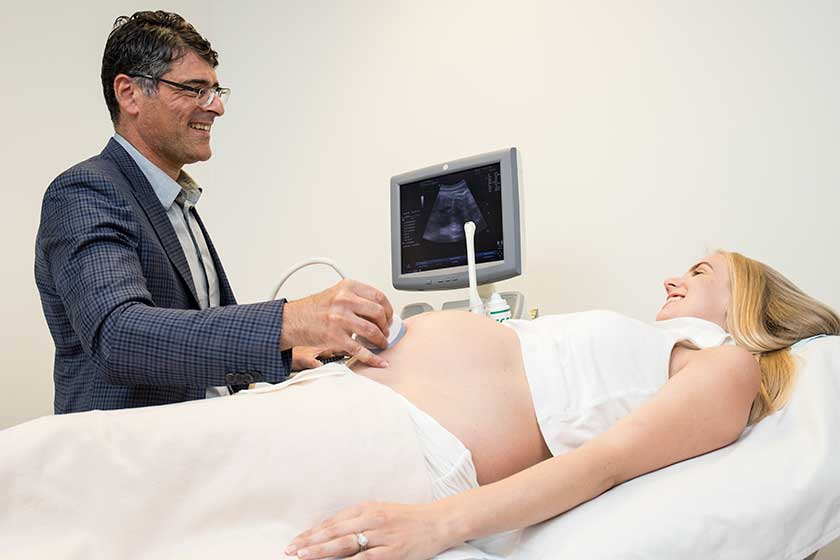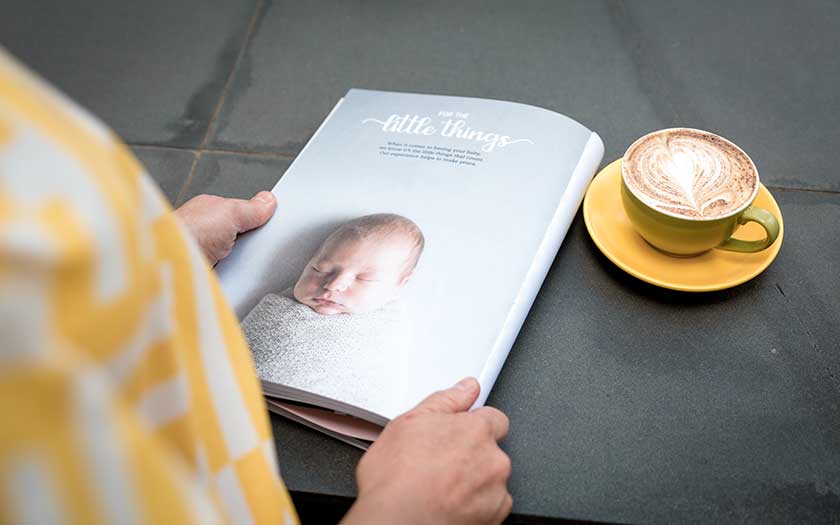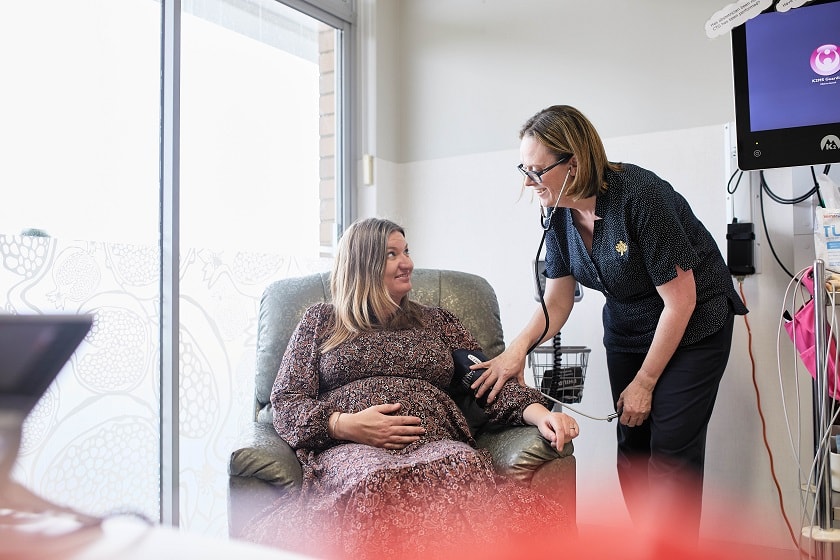Things are very real now. You are visually pregnant and more than likely feeling the effects. Use these months to prepare yourself for birth and parenthood.
Obstetrician visits
Your obstetrician will let you know when to attend your ongoing antenatal appointments. These may become more frequent as your due date approaches or if you experience any complications.
Scans
As your due date draws near, your obstetrician will let you know what scans are required. Your obstetrician is now focused on ensuring your baby is growing as expected and in the best position for birth.
Maternity ward tour
If you haven’t already, book a maternity ward tour so you can meet the midwives and get familiar with the surroundings. These tours are also often offered as a part of our parent education classes.
Parent education classes
As your due date approaches, we help you get prepared for birth and parenting through our parent education classes.
If you haven’t already booked into attend a class, contact the hospital to see what classes are available and book in.
Pack your baby bag
It is better to be prepared so pack your hospital bag well in advance. Don’t forget to pack for yourself, your partner and your new baby.
Install a baby car seat
Some baby car seat installations are more complicated than you think so don’t leave this to the last minute. Check with the manufacturer instructions on how to install the car seat. This is essential to ensure you can take your baby home with you.
Set up nursery
Getting your home ready for your newborn can help you feel more prepared and reduce any anxiety.
You and your baby are likely to spend a lot of time in the nursery in their first few months of life so think about how to make the space work for you, including considering:
- baby’s sleeping arrangements
- a feeding chair
- pre-washing baby’s clothes
- stocking up on nappies and wipes.
Once all the practical things are done you can splash around all the trimmings if you wish. Remember, no heavy lifting.
Don’t forget to breathe. Take a quiet moment sitting on your feeding chair in the nursery. Treat it as your 'me-time' and ensure that the space is comfortable for you.
Stock up the freezer
You will most likely be too exhausted to cook in the first few weeks once you are back home so start cooking extra meals or larger portions and freeze them.
Remember, family and friends are usually quite keen to help so don’t be afraid to ask them to cook some meals for you.
Contact Centrelink
You may be able to apply for financial assistance from the Government. Check the Centrelink website to see what you may be eligible to receive.
You would also have applied for maternity leave by now and will soon be going on leave. Most people choose to work up to 34 to 36 weeks pregnant, but there is really no hard and fast rule. Listen to your body and your obstetrician.
Healthy diet and exercise
Continue maintaining a healthy pregnancy diet and try to keep up some form of light exercise.
Child care arrangements
Start making arrangements for on-call childcare (if you have young children) for when you go into labour.
You may want your partner to be present as a support person, so you may want a trusted family member or a friend to look after your other child or children.
Once your baby is born there may come a time that you might need to leave your child in someone else’s care. Choosing the right kind of care for your child can be a tough decision so it is best to take time to find the right environment that you feel comfortable with.
Final pregnancy tracking
If you have been taking photos of your baby bump you will be able to take some final snaps to compare the growth throughout the past several months.
If you have any questions, don’t hesitate to call the midwife, obstetrician or hospital.
We look forward to seeing you when you come to give birth.











